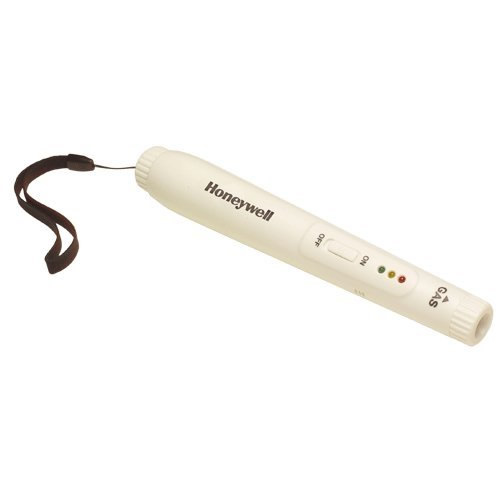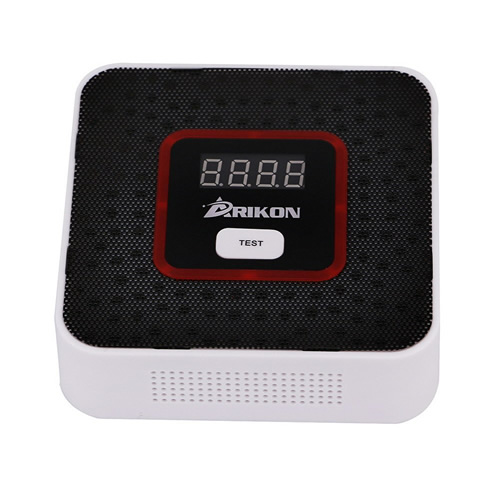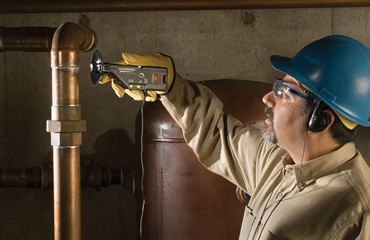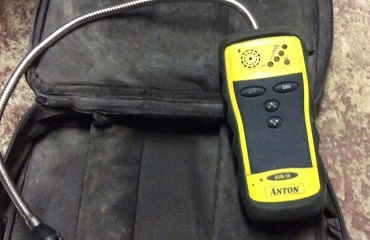Gas Leak Detectors
Check out our article on the best gas leak detectors
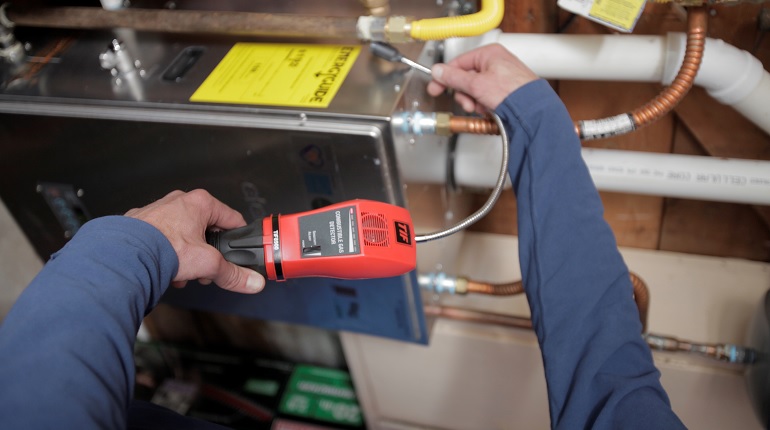
Gas leaks are potentially fatal if not immediately dealt with as they can lead to carbon monoxide poisoning, fires or even explosions. The most obvious sign of a leak is the smell of gas, but if you're asleep or if you have a blocked nose due to a cold etc than you cannot rely on the smell alerting you. There are also some physical symptoms such as feeling light-headed, ill, dizzy or nauseous which can be due to gas leaks - if you suffer from any of these symptoms you should get outside immediately. If the symptoms start to go away in the fresh air then they could be due to a gas leak or carbon monoxide poisoning.
In addition, your gas appliances can also show warning symptoms of deadly carbon monoxide production such as an orange or yellow flame instead of a crisp blue flame, pilot lights that keep going out, soot build up or excessive condensation with a musty smell. If you smell gas or suspect you may have a gas leak, then you should call the National Grid Gas Emergencies (Formally Transco Gas) 24 hour emergency line straight away on 0800 111 999. Do not try to fix the problem yourself, but you can open windows and doors to let air in, turn all gas appliances off and turn the gas off at the mains if possible. Do not switch lights on or off and avoid using any electrical switches or appliances as this could trigger an explosion. It should go without saying, but obviously you need to avoid any naked flames if you smell gas!
Gas leaks in homes are most often caused by poorly fitted, badly maintained or faulty gas appliances like boilers and cookers. If gas appliances are badly fitted then dangerous gas can escape which is why you should always ensure all gas appliances are installed by an accredited Gas Safe engineer. You should also ensure a Gas Safe engineer regularly services all the gas appliances in your home too, at least once every 12 months, and be wary of old or second-hand gas appliances if you are just moving into a new property, unless you know for sure they have been checked recently, then get them checked again.
In the last three years alone one in six homes inspected by the Gas Safe Register organisation was found to contain an unsafe gas appliance, and over the same time frame 31 deaths and over 1,000 injuries have occurred because of a gas related incidents. Modern gas systems if properly fitted and maintained are very safe indeed, but poorly installed or maintained gas systems are potential death traps.
Gas leak detectors are normally classified according to their operation mechanism and can be either portable devices or fixed gas detectors. Portable detectors are used by professionals when visiting premises to check for gas leaks and are battery operated, whereas fixed detectors are generally mounted near the boiler or gas appliances. gas leak detectors can use electrochemical, infrared, semiconductor and or ultrasonic systems to detect natural gas or methane.
Our favourite gas leak detectors
-
Best Detector
Honeywell ZPFL1 Gas Detector
£30 -
Budget Detector
Arikon Gas Detector with Digital Display
£15
Arikon Gas Detector
The ARIKON Gas Detector with Digital Display is a great budget gas detector available from just £14.99 yet offering superior alarm performance. This smart device can detect the leak of combustible gas such as liquefied petroleum gas (LPG), natural gas and methane. This inexpensive detector features voice prompts, microprocessor control and an LCD display showing the gas concentration in PPM (parts per million). The ARIKON Gas Detector can keep your home safe from the threats of combustible gas and has passed both CE & ROHS Certification.
The device is easy to use too, simply connect to mains power and the device wil power up and let you know you need to wait for 3 minutes via a voice prompt while the detector is powering up. If the gas concentration is over 2500PPM, the detector will alarm and voice prompt will state "attention please, gas leaking" along with a flashing red indicator light.
Honeywell ZPFL1 EZ Gas Detector
The Honeywell ZPFL1 EZ Sense Flammable Gas Detector is a more expensive option priced from around £30 and is designed especially to detect minute traces of flammable gases like Methane, Butane, Propane and LPG. The Honeywell ZPFL1 EZ Sense can last around 4 hours of use from the included 2 AA alkaline batteries. This unit is also very compact measuring just 22cm x 9cm x 3.8cm and weighs just 181g. The Honeywell ZPFL1 EZ Sense is an excellent investment for anyone worried about the potential dangers of leaking gas, small enough to be hardly noticeable yet providing 24/7 protection in your home.
Omnitron Detekta Gas Detector
For truly mobile gas detection products the Omnitron Detekta Gas detector is a compact, pen-sized, battery operated gas leak detector which can detect all combustible gases including methane/natural gas, butane and propane/LPG yet costs less than £30. Simple to use and just 188mm x 30mm, this device is supplied with 2 x 1.5 V AA alkaline batteries and when gas is detected an alarm sounds and LED lights flash.
Another really cheap method of gas detection is to use one of the detector sprays produced by companies like Calor. This is a simple but effective way to find gas leaks in pipelines and does not stain or cause corrosion. You simply spray the fluid on any pressurised pipework to easily detect potentially dangerous leaks without any expensive products. These sprays cost £5 or less and can be used many times.
But remember that if you get gas appliances properly installed by a Gas Safe engineer and also have them serviced at least every 12 months by the same engineers, then your gas systems will be thoroughly checked for leaks in any case. Using a gas detector to check for leaks is an important part of any gas installation/service. But gas detectors are now so cheap that it makes sense to have your own detector just to double check for leaks in between the annual gas safety inspections carried out by Gas Safe engineers.


